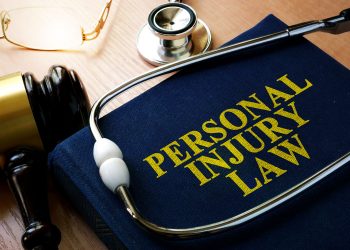Five Facts You Should Know About DUI Laws in Maryland
Staying informed about DUI laws in Maryland is one of the most important steps you can take to defend your rights if you are arrested for drunk driving. Here are five facts you should know about DUI laws in Maryland.
A DUI conviction in Maryland has significant long-term social, financial, and professional consequences for offenders. A conviction also appears on criminal background checks, making it harder to find a job.
What is a DUI?
Driving under the influence in Maryland can be a serious offense. There are several different types of drunk driving charges, and each carries different penalties upon conviction. A DUI is the most serious offense and is a criminal charge. A person can be charged with DUI if they have a blood alcohol concentration (BAC) of.08 or higher as measured by an intoximeter during a traffic stop. It is also a crime to drive while under the influence of any drugs, including legal prescription medications and illegal street drugs or a combination of drugs and alcohol.
A DUI conviction can be very serious, especially for commercial drivers who are likely to lose their livelihood. For this reason, the State of Maryland and law enforcement officers put a lot of energy into cracking down on impaired driving. However, DUI laws can be complex and confusing. That is why an experienced DUI attorney can be a valuable asset for anyone facing drunk driving charges in Maryland.
What are the penalties for a DUI?
In Maryland, a person may be charged with DUI and/or DWI if they are found to be driving while impaired by alcohol or other drugs. It is illegal to drive with a BAC of 0.08% or higher. It is also illegal for an underage driver to have any BAC at all, as the state has a zero tolerance policy.
When a police officer suspects that an individual is driving under the influence, they will ask them to submit to field sobriety tests. If the results of the tests are positive, the officer will arrest the driver.
A DUI conviction has many long-term ramifications. Among others, a DUI conviction will appear on criminal background checks and will affect insurance premiums for years to come. Having a DUI conviction can also prevent you from getting certain jobs and can cause you to be excluded from many social and professional opportunities. As such, it is important to have the right legal representation in place.
How do I defend against a DUI charge?
In the state of Maryland, DUI charges carry serious consequences and should not be taken lightly. It is crucial that you consult with an experienced criminal attorney to help you fight against the charges. A drunk driving conviction can have long-term social and financial implications, including the possibility of losing a job or being overlooked during the hiring process, having higher insurance premiums, and possibly jail time.
There is a difference between DUI and DWI charges, with DUIs being reserved for individuals over the age of 21, while DWIs can be charged to drivers of all ages. In addition, the state of Maryland requires that a person participate in an ignition interlock device after a DUI conviction.
DUI checkpoints are a common sight on Maryland roadways around holidays, where police may stop every 4th car or so for a more in-depth investigation of the driver and passenger(s). An experienced criminal attorney could argue that such an intrusion into a driver’s privacy was unlawful.
How do I get my license back after a DUI?
Maryland, like most states, has strict laws that are meant to keep high-risk drivers off the road. Drivers who get enough points in a two-year period and/or violate alcohol restrictions may have their licenses suspended or even revoked.
Once a person’s license is suspended or revoked, they are not permitted to drive until their license is reinstated. This process can take months. During this time, the individual must satisfy all criminal requirements set by the court and pay all associated fines.
They must also serve their suspension or revocation period and complete all court-ordered conditions, including alcohol treatment programs and safe driving classes. Finally, they must pay all required reinstatement fees and annual surcharges.
Having an accomplished Glen Burnie DUI lawyer can help individuals fight their case in court to have their license reinstated as quickly as possible. In some cases, a judge may allow an individual to request a restricted license that will permit them to operate a vehicle for work purposes.














